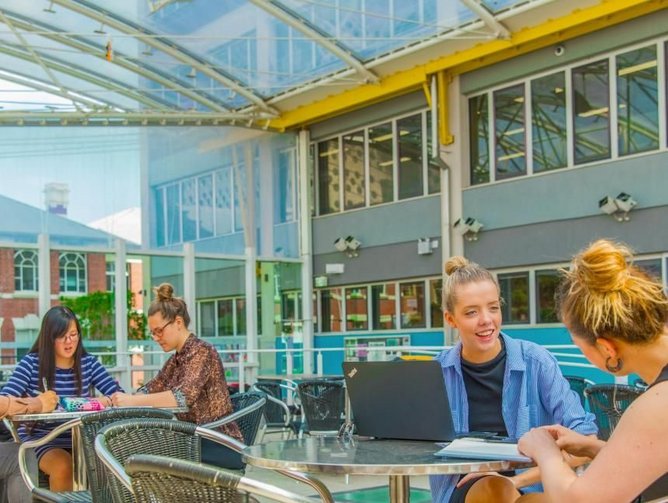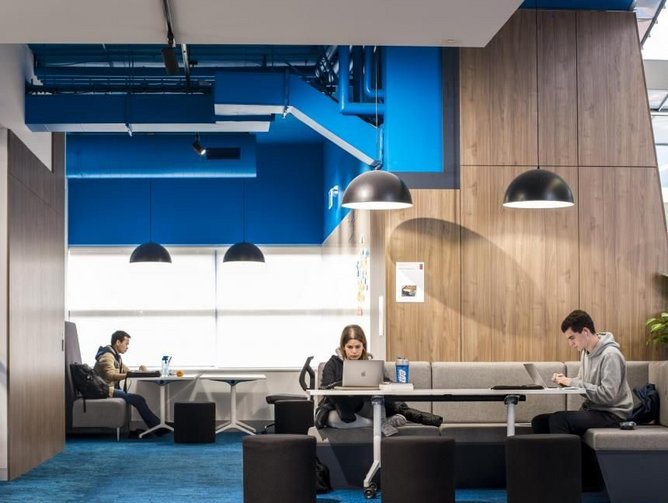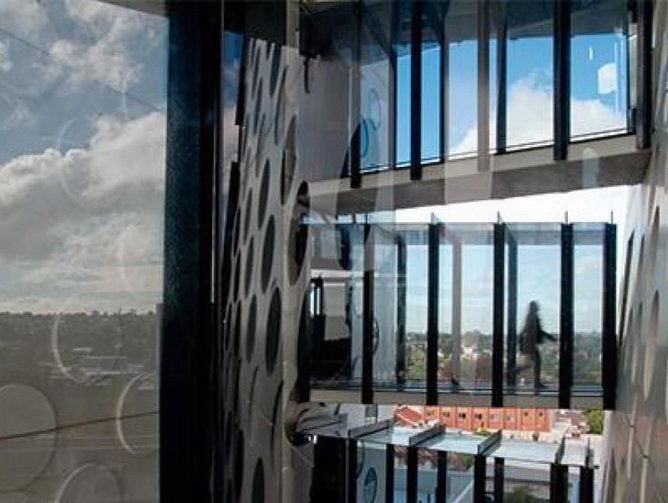Swinburne University of Technology develops future-ready learners through an innovative digital transformation
Today’s students can forget the days of trawling through library book indexes for specific keywords and frantically hand-writing notes in unengaging lecture halls. Technology is at the forefront of academia, from the ways students consume information through e-learning portals and networks, to utilising virtual and augmented reality technologies as a part of everyday life.
Sean Elwick, CIO at Swinburne University of Technology in Melbourne, Australia, tells us of the institution’s ongoing digital transformation.
Swinburne is in the world’s top 400 universities, according to the 2019 QS and Times Higher Education university rankings, and “has an international reputation for quality research that connects science and technology with business and the community.” Innovation runs through every aspect of the university, and its progressive agenda with an emphasis on the importance of utilising technology sets Swinburne apart from other institutions.
Sean Elwick has only been CIO at Swinburne since September 2019, joining mid-way through a promising digital transformation backed by a progressive mindset with innovation at its core. The university’s 2025 strategy has three key pillars: innovative enterprise, future-ready learners, and research with impact, creating “confident and enterprising learners who create social impact,” with agile strategies at its core.
User experience is at the forefront of the digital transformation led by Elwick. “In a B2C environment where your main audience is people who are digitally native, you must be able to have that intuitive, sticky experience,” he explains. “As an IT team, it is important that we get the basics right. Expectations are rising around how we take that next step.”
Quality data management is an essential step in kickstarting that great user experience. Ensuring they are collecting the right data and using it in the right way is integral, particularly in a technological society which holds personalisation and individualism at its centre. This includes the ever-changing way that students interact with learning tools.
Swinburne is beginning to harness the potential of virtual reality (VR) and augmented reality (AR) to take the student experience to the next level. In partnership with the Faculty of Health, Elwick’s team are piloting an AR scheme with first-year health students on anatomy programmes, where instead of having a physical cadaver to study, they can examine one virtually through AR and life-size touchscreen displays. “There are many implications of having a cadaver on-site,” says Elwick. “We’re exploring using augmented reality, so a body can be scanned and then students can study it in the virtual world.”
Swinburne has partnerships with leading tech companies, most notably Adobe and Canvas. The university is the first Adobe Creative Campus in Australia, and one of only 20 worldwide. This status means that from November 2019, all Swinburne students will have access to Adobe Creative Cloud - a collection of the world’s best applications and services used for graphic design, video editing, web development and photography.
As an Adobe Creative Campus, Swinburne is now more poised than ever to create future-ready learners. “It’s not just about the academic qualifications, but about being able to navigate today’s dynamic world with digital literacy,” explains Elwick. “Students can experiment with different skills that are essential for today’s work, and the work of the future.”
Additionally, by transitioning from Blackboard to Canvas as their learning management platform, students can access content across any connected device. Canvas supports group work and collaboration, and is “a very modern platform for us to go forward with,” believes Elwick.
Swinburne also has its own Digital Transformation Centre, the first of its kind in Australia. In partnership with DXC Technology, the world’s leading independent, end-to-end IT services company, the DXC Digital Transformation Centre at Swinburne “allows for collaboration between DXC, ourselves, the government and industries,” affirms Elwick. It not only provides opportunities to students in creating a talent pool prime for internships and jobs post-graduation, but also to local businesses and start-ups who are offered smart ways to get competitive on a global scale.
As part of its engagement with start-ups and the future of innovative tech, Swinburne presents the Venture Cup, now in its 20th year. The prize is AU$20,000 in funding for the most exciting start-up which addresses an unmet need for its target audience, and along the way entrants receive bespoke coaching from successful founders, including pitching workshops. 2019’s winning start-up, Project Milk, has developed a new breast pump design that will improve mothers’ experience of expressing breast milk.
Recognising that “innovation occurs when divergent concepts come together to form a solution,” Swinburne has created the Innovation Precinct. The university utilises their strong industry ties, rigorous research capabilities and agile approach to change, and has produced “an innovation ecosystem that supports ideas both big and small.” The precinct’s three pillars of innovation are Design Factory Melbourne, Factory of the Future, and the Digital Innovation Lab - each contributing to a platform for research and experimentation which promotes software engineering competency, virtual reality learning, and “a hub for engaging manufacturing businesses, undergraduate and high school students, alumni and the wider community.”
Swinburne has already achieved so much in their digital transformation. Using their expertise in industry 4.0 technology, social impact and design thinking, the university has created an inspiring, innovative environment for students, staff, alumni and the community to develop future-proof skills in technology.
“Technology is in our DNA,” said Elwick. “Swinburne University of Technology wants to be known for its innovative tech, and for me that’s about setting the bar high and thinking ‘what can we achieve?’”
Curiosity is key to Elwick’s strategy. In encouraging a change of mindset among his peers and colleagues, guiding his team to “just imagine” the future of the IT culture at Swinburne University, he encourages them to open their minds to risk-taking in order to achieve the end goal of a transformed, uplifted IT culture in partnership with the university. While there are increasing demands and increasing expectations from IT, Elwick maintains that it is important to “celebrate your mistakes, as you learn as much from your mistakes as your successes,” and to ‘Just Imagine’ what can be achieved through a transformed IT culture.
During his tenure as CIO, Sean Elwick wants to enable “an outstanding digital experience for our students and staff through our university strategy.” With his agile, thoughtful and curious approach, and a strong springboard created by his peers and predecessors, Swinburne University is primed to create future-ready learners, inspire innovative ideas, and ultimately deliver a “digital ‘wow’ experience.”






